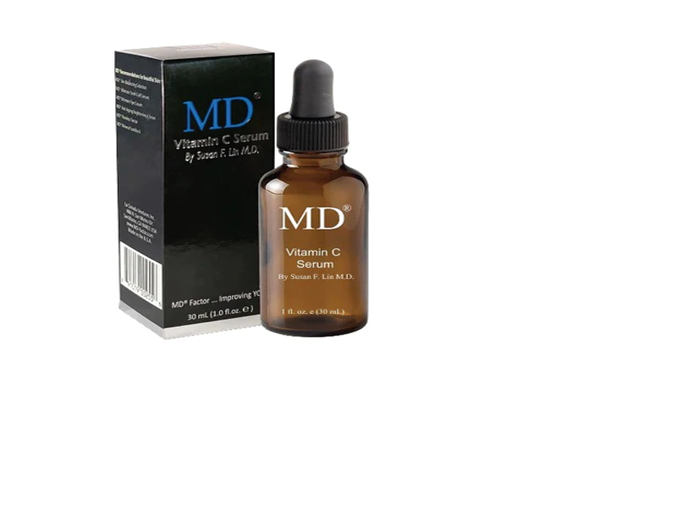Reasons to Add Vitamin C Serum to Your Daily Skin Care Routine
4 min read
You’ve probably heard about anti-aging vitamin C serums if you’re interested in skincare. Vitamin C is one of the top ingredients on the market for anti-aging assistance and the secret to preserving a smooth, even, glowing complexion.
While you presumably consume vitamin C in your diet, there is no way to ensure it reaches your skin. The most straightforward approach to get these advantages is to use serums and other topical products.
Continue reading to learn more about introducing a new product, adding vitamin C serum to your routine, and other topics.
Benefits
There are numerous advantages of using anti-aging vitamin C serum on your skin. The benefits are as follows:
It’s Safe for Most Skin Types
Its safety record is great for vitamin C. Most people can utilize topical vitamin C for a long time without suffering side effects.
In concentrations exceeding 20%, vitamin C may cause mild skin irritation, according to a 2017 assessment of the literature. As a result, its concentration in anti-aging skin care sets often ranges between 10% and 20%.
It’s Hydrating
The majority of healthy skin and organs have high concentrations of vitamin C, which suggests that vitamin C builds up in the body through circulation, according to a 2017 assessment of the literature.
According to review authors, the ascorbic acid form of topical vitamin C penetrates the skin the best.
A 2022 review found that magnesium ascorbyl phosphate, another vitamin C derivative used in skin care, had a moisturizing impact on the skin.
Its Brightens Skin Tone
Vitamin C can smooth the skin’s surface to lessen dullness and remove pigmentation (more on this below!). Skin looks younger as a result of this.
The usage of vitamin C has been found to suppress the synthesis of melanin, according to a 2017 review. The pigment responsible for giving skin its colour is melanin.
It Helps Fade Hyperpigmentation
Anti-aging Vitamin C serum can lighten hyperpigmentation since it suppresses melanin formation.
Melanin overproduction in specific skin regions leads to hyperpigmentation, including sunspots, age spots, and melasma. Additionally, it can take place in regions that have recovered from acne.
Tyrosinase activity is suppressed by vitamin C, which prevents melanin production. It is frequently employed in dermatology to lighten hyperpigmented skin lesions.
Although there are few trials, it has also been used to treat gingival melanin hyperpigmentation (gum hyperpigmentation).
Having acne issues? In addition to vitamin C serums, there are other options for treating hyperpigmentation acne.
It may help prevent skin sagging
Elasticity and hardness of the skin are related to collagen synthesis. Your skin may start to sag as your collagen levels start to decline.
According to a 2017 review, using a vitamin C serum may increase collagen formation and have a tightening impact. This holds whether the drooping is brought on by oxidative stress, natural aging, or drastic weight loss.
It protects against sun damage
Depleted vitamin C levels in the skin are linked to prolonged exposure to oxidative stress by contaminants or ultraviolet (UV) radiation.
Additionally, vitamin C levels are lower in older or photodamaged skin, while it is unclear whether this is a cause or an effect.
Free radicals are a class of chemicals that cause sun damage. These are atoms in which an electron is absent. Free radicals are atoms that seek out other atoms from which they might “take” an electron, which can seriously harm the skin.
Antioxidants abound in vitamin C. Healthy skin cells are shielded from free radical damage by antioxidants, which “give” these radicals an electron to make them harmless.
It helps reduce redness and even out your skin tone
A 2015 analysis found that vitamin C’s ability to serve as an antioxidant also allows it to act as an anti-inflammatory agent. This indicates that it can lessen puffiness while calming your skin.
Vitamin C’s anti-inflammatory qualities can also reduce redness, leading to a more uniform complexion.
A clean, smooth skin tone results from the simultaneous elimination of dark spots, redness, and inflammation.
How to use a vitamin C serum
All skin care treatments can potentially produce adverse effects, although topical anti-aging vitamin C serum is typically well tolerated.
Always perform a patch test to determine your likelihood of experiencing allergic reactions. This is how:
- Choose a small, discrete piece of skin, such as your forearm.
- Wait 24 hours after applying a tiny amount of product.
- If there are no adverse side effects, you can apply them to your face. Stop using the product if you have a rash, redness, or hives.
- Follow the product’s label directions when it’s time to apply the product thoroughly.
It’s preferable to introduce new cosmetics one at a time, separated by a few weeks, as repeated exposure could cause a skin reaction.
Usually, vitamin C serum is applied once or twice daily. Cleanse, toning, applying vitamin C serum, and moisturize are good general guidelines. Use clean hands before applying skin care products.
Wrapping Up
Hyperpigmentation may be lessened, blemishes can be healed, and anti-aging vitamin C serum can make your skin sparkle like the sun.
For the best results, consistency is essential, so incorporate it into your skincare routine as it makes sense for you.
Some people use it in the morning to benefit from its UV protection, whereas others discover it functions best as a night serum. Others use it twice each day. If you start to feel uncomfortable or irritated, stop using.







